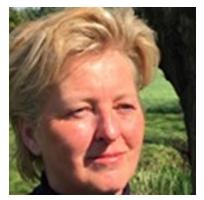
Municipality of Middelburg
Coordinating the Vision
As the lead partner of the Cool Neighbourhoods project, the Municipality of Middelburg oversees the project’s overall direction and financial management. Middelburg plays a vital role in ensuring the effective coordination of activities, fostering collaboration among North West Europe partners, and driving the project’s shared vision of creating more liveable, resilient urban environments.
A key responsibility is managing communication and dissemination efforts, ensuring that the knowledge and results generated by the project are shared widely across participating regions and beyond. This helps maximise the impact of the project and promotes the replication of successful strategies.
Tiny Maenhout, the primary contact for Middelburg, ensures seamless collaboration among partners, aligning local activities with the broader project goals. In addition to its leadership role, Middelburg contributes to local pilot activities, providing valuable insights into sustainable urban planning and community engagement.
By combining strategic oversight with practical implementation, Middelburg exemplifies leadership in creating greener, cooler, and more sustainable neighbourhoods.

SIOEN
Innovating with Smart Textile Solutions
SIOEN brings its cutting-edge expertise in technical textile solutions to the Cool Neighbourhoods project, contributing innovative materials like shade sails, façade membranes, and its vertical garden system, Greentexx®. These solutions are specifically designed to meet the unique cooling needs of urban neighbourhoods.
Led by Dr. Benny Pycke, SIOEN’s team of experts will provide technical support and guidance to pilot partners, helping them develop and implement sustainable cooling interventions. These include air purification, wind reduction, rainwater buffering, adiabatic cooling, mental health improvement, thermal insulation, and even extending the lifespan of buildings.
SIOEN’s involvement does not stop at providing materials. The company will work closely with the pilot partners to ensure that each project’s transformation is long-lasting, cost-effective, and provides maximum benefits for local residents. By collaborating with partners from cities like Antwerp (BE), Goes (NL), Wimereux (FR), Differdange (LU) and more, SIOEN ensures that the pilots are both affordable and technically sound, delivering a strong return on investment (ROI) for the communities involved.

City of Ettelbruck
Greening Public Spaces for Heat Resilience and Community Wellbeing
The City of Ettelbruck, led by Dr. Sacha Oberweis, is committed to enhancing urban resilience by integrating green zones into public space design. As part of the Cool Neighbourhoods project, Ettelbruck is undertaking a pilot project to transform a 12,000 m² car park into a green area.
This pilot, located in a floodable zone, follows the City’s circular economy principles, with existing materials reused onsite or at other locations. The project aims to reduce urban heat by increasing green surfaces and de-hardening public spaces.
The impact on air quality and urban cooling will be monitored through data collection and surveys, extending beyond the project’s lifetime to ensure long-term insights. The pilot will also contribute to the Cool Neighbourhoods business model and liveability index, with citizens engaged through surveys and workshops to gather valuable feedback on the improved public spaces.

City of Differdange
Promoting Urban Greening through Vertical Gardens
The City of Differdange, Luxembourg’s third-largest city and a member of the PRO-SUD association, is committed to enhancing urban resilience through its Cool Neighbourhoods pilot project. Led by Luc Arend, the city will install a vertical garden on the wall of a primary school in the city centre. This initiative aims to mitigate heat stress and promote sustainable urban greening.
The pilot project will be coordinated by a member of the city's ecological service, who also oversees the "Mission Net Zero" initiative in Differdange. The city will work closely with PRO-SUD to ensure the project's success, contributing to Differdange’s broader efforts towards sustainability and ecological innovation.

Province of Antwerp
Leading Training and Empowerment
The Province of Antwerp (PoA) plays a crucial role in the Cool Neighbourhoods project by taking the lead on training and empowerment efforts. As a key player, PoA will coordinate with various partners to ensure the delivery of high-quality outputs. Drawing on its strong network of local governments and stakeholders, PoA will guide the needs analysis to ensure the training modules are effective and well-targeted.
Led by Magali De Wachter, PoA will design climate adaptation training programmes, using its extensive experience in delivering similar trainings to local governments. These modules will be tailored to address real-world challenges and translated into practical solutions that can be applied in local communities.
PoA will also prepare a pilot implementation plan for the PoA pilot, conducting measurements to assess the impact of the interventions on heat stress and building performance. With its expansive network of local authorities, PoA will ensure that the project’s communication, dissemination, and replication efforts are maximised, helping to spread the project’s results across other regions.

University of Antwerp
(Institute of Environment and Sustainable Development)
Pioneering Liveability Strategies
The University of Antwerp, specifically its Institute of Environment and Sustainable Development, plays a vital role in the Cool Neighbourhoods project by leading efforts to make liveability a cornerstone of urban heat stress mitigation. Dr. Wito Van Oijstaeijen will spearhead the development of strategies and tools aimed at implementing effective mitigation measures tailored to urban environments.
As the leader of this initiative, the University will focus on creating a neighbourhood-specific Intervention Catalogue and a Cost-Benefit Model (CBM) tool. Collaborating closely with partners such as HZ, Except, and Middelburg, the University will ensure that these resources are grounded in practical applications and aligned with the project’s objectives.
In addition to its leadership role, the University will contribute to inventorying liveability indicators and establishing baseline metrics for monitoring these indicators. This information will be essential for feeding into both the Intervention Catalogue and the liveability index, which form part of the broader liveability strategy for municipalities.
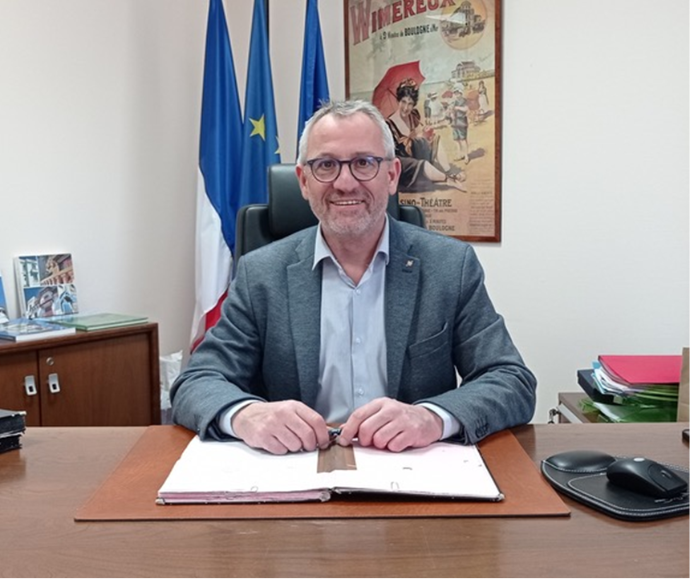
Wimereux City Council
Enhancing Urban Liveability through Green Solutions
The Wimereux City Council is dedicated to tackling heat risks, particularly for vulnerable populations within the city. Under the leadership of Mr. Stéphane Gilbert, the council aims to improve the liveability of its inhabitants by implementing nature-based solutions in the town centre, specifically greening Place Albert and the adjacent buildings, including the tourist office.
Recognising that this area is particularly susceptible to heat stress during the summer months, Wimereux has already developed a guidebook and masterplan for their pilot area. The project will engage key target groups, such as elderly residents and children, to foster community involvement. The vision for Place Albert is to transform it into a welcoming gathering space where people can find respite from the heat, enhanced by greener surfaces, de-hardening initiatives, and innovative materials.
Wimereux will actively participate in developing a neighbourhood heat stress action plan, implementing a training scheme, and conducting citizen science initiatives. These initiatives will include monitoring the impact of heat stress and assessing the performance of buildings through sensor technology. Through these efforts, Wimereux is committed to creating a more resilient and liveable urban environment for all its residents.

Pays of Saint-Omer Agglomeration Council (CAPSO)
Advancing Urban Heat Resilience
The Pays of Saint-Omer Agglomeration Council (CAPSO), under the leadership of Sabine Courouble, aims to build on the insights gained from the COOL TOWNS project to enhance urban heat resilience within its jurisdiction. Although the intervention could not be implemented during the COOL TOWNS project, CAPSO is eager to collaborate with the City of Saint-Omer on its Urban Renovation Programme, particularly focusing on the historical heart of the city through the pilot project at Quai des Salines.
CAPSO contributes to the infrastructure study and urban works at the pilot site, working closely with the City of Saint-Omer. The council runs the Urban Renewal programme for the Salines neighbourhood, which includes a robust social urban development policy that prioritises citizen participation. CAPSO leads community engagement initiatives and the Council of Inhabitants, a specific target group aimed at involving residents in citizen science projects.
Additionally, CAPSO is committed to training its staff, decision-makers, and building professionals in heat-resilient solutions, ensuring these strategies are rolled out at a broader scale. As part of its responsibilities, CAPSO will coordinate the training implementation within the French-speaking regions of the Cool Neighbourhoods consortium.
By leveraging its Office of Sustainable Housing (MAISON DE L’HABITAT), CAPSO will disseminate the project results across the wider Hauts-de-France regional network of Local Climate Action Plan managers. This collaborative effort aims to improve the liveability of neighbourhoods facing heat stress and contribute to a more resilient urban landscape.
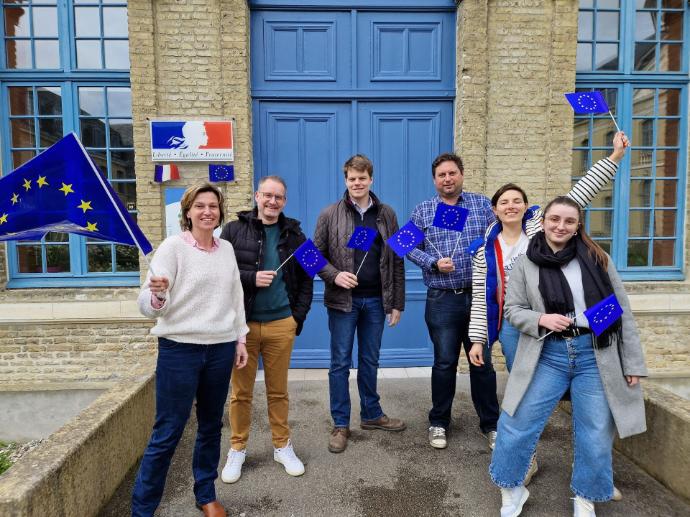
City of Saint-Omer
Revitalising Urban Spaces for Community Resilience
The City of Saint-Omer, under the leadership of Sylvain Pauwels, is undertaking a comprehensive urban renewal project focusing on the southern part of the city. Central to this initiative is the redevelopment of public spaces, particularly the complete requalification of Quai des Salines, Rue du Pelicorne, and Passage des Quais.
An initial diagnosis of the sector highlighted the need for further technical studies to assess the structural condition of the quay, which will inform potential consolidation and redevelopment opportunities. In the context of the Cool Neighbourhoods project, the redevelopment efforts for Quai des Salines will enhance the living environment, focusing on requalification and greening initiatives that benefit local residents.
The project will prioritise community involvement by consulting with local residents, integrating their insights and experiences into the development solutions. Through collaborative design and engagement with Cool Neighbourhoods partners, the City of Saint-Omer aims to pioneer a new approach and test innovative technical solutions to enhance urban resilience and liveability.
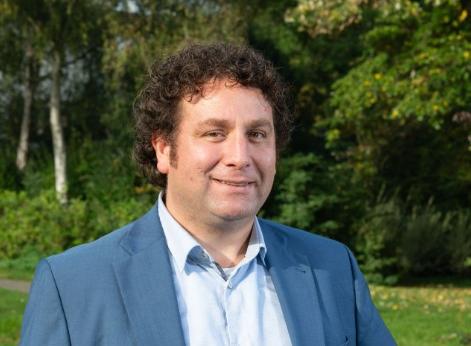
HZ University of Applied Sciences
Tackling Urban Heat Stress through Monitoring and Community Engagement
HZ University of Applied Sciences, led by Dr. Jean-Marie Buijs, plays a vital role in the Cool Neighbourhoods initiative, focusing on heat stress mitigation through monitoring and community involvement. The university of applied sciences will implement neighbourhood-level heat stress measurements using sensors to track urban heat island (UHI) effects, such as temperature and humidity. HZ joins the Cool Neighourhoods project with experts on climate adaptation, data science and citizen participation. Moreover, also students will be involved in developing and testing tools in the Middelburg and Goes pilot areas.
A key component of their approach is developing a citizen science implementation plan that utilises low-cost temperature sensors, inviting local communities to engage in development of climate proof and liveable neighbourhoods. HZ will also create a guideline for municipalities to facilitate comparable measurements across pilot areas.
In addition to supporting pilot projects, HZ will foster collaboration through communities of practice, evaluate project implementation, and analyse data from diverse housing types in the Goes and Middelburg pilot areas. This analysis will inform insights on UHI effects.
Moreover, HZ will develop 3D visualisations for the pilot areas, which will be used in workshops with civil servants, decision-makers, and local stakeholders. These efforts aim to enhance planning and devise effective solutions to combat heat stress at the neighbourhood level.
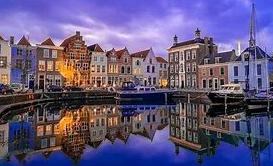
Municipality of Goes
Developing Green Solutions for Urban Heat Stress
The Municipality of Goes, for this project represented by Carolien Eijkelenboom, is committed to developing and implementing a Neighbourhood Heat Stress Action Plan across two key areas: greening the vicinity of the municipal office to create a green hub and enhancing the greenery in two areas in the city centre. These pilot projects aim to transform public spaces into cooler, greener neighbourhoods, thereby improving the quality of life for residents.
Through these initiatives, Goes will share insights on effective approaches, participation, and various solutions for addressing climate challenges. The municipality will also contribute its experience to establish a joint training scheme focused on action plans for heat stress, empowering residents, and selected target groups within the two pilot neighbourhoods.
By measuring outcomes and experimenting with citizen science, the municipality aims to gain valuable insights into the effectiveness of different interventions. This knowledge will inform the neighbourhood-specific intervention catalogue and guidelines on citizen science and sensor techniques. The pilots will ultimately provide essential input for the quality-of-life strategy within the Cool Neighbourhoods project.
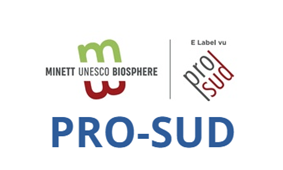
PRO-SUD
Advancing Climate Resilience through Regional Analysis and Education
PRO-SUD, under the leadership of Mrs. Gaëlle Tavernier, is conducting an in-depth bio-climate analysis for the 11 municipalities within its syndicate, focusing on urban heat islands. This model-based study, carried out in partnership with the Luxembourg Institute of Sciences and Technology (LIST), will examine thermal well-being in outdoor spaces, night-time ventilation improvements, and the reduction of indoor heat loads, with results expected in mid-2024.
Alongside this, PRO-SUD runs an exchange platform for the ecological services of its municipalities and maintains strong connections with local schools through environmental education. These efforts will help raise awareness about ecosystem services, particularly the role of vertical gardens in enhancing biodiversity in urban areas.
PRO-SUD will contribute to the Cool Neighbourhoods project by testing training models for civil servants and technicians, as well as leading participatory projects with schools and youth groups. The organisation will also oversee a pilot project in Differdange, centred around urban greening and climate resilience.

Except Integrated Sustainability
Empowering Communities for Climate-Resilient Neighbourhoods
Except Integrated Sustainability, led by Eranda Janku, is at the forefront of empowering communities to tackle urban heat challenges. As a key partner in the Cool Neighbourhoods project, Except brings expertise in sustainable development and urban planning, guiding the creation of the Neighbourhood Heat Stress Action Plan (NHSAP) framework and liveability strategies.
Using its Symbiosis in Development (SiD) framework, Except supports all nine pilot projects and leads the design and implementation of five pilot locations, including Goes and Middelburg. These pilots focus on innovative cooling solutions, stakeholder empowerment, and community engagement to create lasting, climate-resilient neighbourhoods.
By documenting best practices and developing scalable business models, Except ensures the Cool Neighbourhoods project delivers actionable insights and strategies that can benefit urban areas across North-West Europe.
